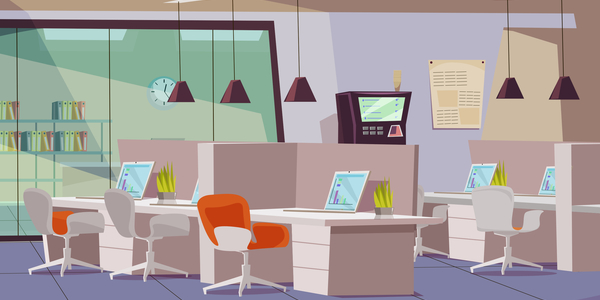Today, Saturday 10 October, is the World Health Organisation’s World Mental Health Day. It comes…

Join us as a therapist

Dr. Craig Knight, a Chartered and Registered Psychologist and Research Fellow at the University of Exeter is sharing his advice on how the pandemic is changing the workplace.
“Oh, alright then,” claimed Savage defiantly, “I’m claiming the right to be unhappy.” (Huxley, Brave New World)
It is a truism that nobody knows how to play the game in the new world of work. We are in unchartered territory; the rules are inchoate, everything is changing.
Well, not exactly. We do know quite a bit about how people react at work. We know what is required to make a good workplace and we certainly know what a bad space looks like. Using this knowledge, we can avoid the rubbish and plan truly excellent places of work for everybody, right away and on into the future. However, there are elephantine problems spinning around on their office chairs.
Looking down their trunks at what to do, now and post Covid19, are the same people who oversaw the offices we had before the pandemic kicked off. They have wondrous plans to build spotless workplaces. Places that are ultra-clean, distanced, scrubbed. Sterilized offices-cum-operating-theatres where microbes are pickled in alcohol gel before you can say “Wuhan”.
If only you could keep the people away. Germ-sporting colleagues who probably haven’t washed their hands in the last ten minutes, who breathe over things, and …is that a pill she’s taking?
We are fortunate indeed that these Ganeshas of the workplace beat our bounds. They make sure that all work surfaces are spick, walkways are span and nothing untoward is introduced to upset the aseptic wilderness, except for strips of crime-scene barrier tape to keep people apart. These utopias await many.
There is an astonishing lack of knowledge about the workplace that rolls around the globe. So many workplace specialists who are as competent – and as dangerous – as a toddler driving a tank. That most entertaining of football managers, Brian Clough said “I wouldn’t say I was the best in the business. But I’m in the top one.” that was it for other people to say how good he was at his job. Brian said the only thing he was sure of. Mind you the definition of an expert is: ‘ex’ is the past tense and a ‘spurt’ is a drip under pressure. All the same, here is the applied science about what makes a good workplace.
Do not, ever, under any circumstances, put your colleagues to work in stark, minimalist, unenriched working environments. Please pay attention to the word ‘ever’; ‘ever’ includes now. The human being is an animal. It is essential to any animal that you enrich its habitat; otherwise, it suffers.
There are no excuses. Many people returning to work will be nervous, reticent, even unwilling to fly their desks again. To usher them into a space redolent of when they had their appendix whipped out – only without the nice drugs – will boost neither confidence nor ambience. We should not put people to work in stark minimalist space unless they chose it themselves.
Plants, clever lighting, pictures will help everybody in strange physically distanced offices. Barren may be easy to keep clean, but people’s welfare is not about the easy swoosh of a mop. There are several good ideas about how to use plants to ensure physical distancing is maintained. These ideas coincide with good science, good manners, and even better business. The evidence is overwhelming, a psychologically engaging space will almost certainly make you more money than its barren alternative. (or at worst in these times, won’t lose you as much). The ROI is impressive.
While we are here, let us twist the psychological stake into the heart of bad practice. The evidence also strongly suggests that denuding a working area that had previously been enriched, is worse than never having enriched it all. If you are used to photos on your desk, to plants and pictures around the place, then their removal is likely to be dramatic and damaging. Expect key organizational variables to plummet including well-being, altruism, and performance. You stand to lose a packet.
The take-home message is simple: Cleanliness, yes; Physical distancing, yes (sadly); Psychological enrichment, we would struggle to live without it.